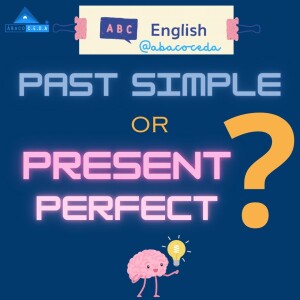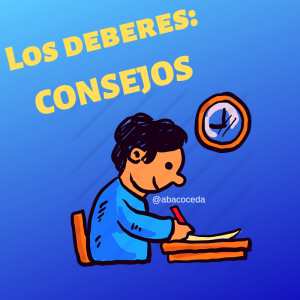PAST SIMPLE or PRESENT PERFECT?
 Past Simple or Present Perfect? En este post vamos a explicaros la diferencia principal entre ambos tiempos ya que en numerosas veces ocasiona dudas.
Past Simple or Present Perfect? En este post vamos a explicaros la diferencia principal entre ambos tiempos ya que en numerosas veces ocasiona dudas.
En primer lugar, el PAST SIMPLE es el tiempo verbal para hacer referencia a una acción que empezó y terminó en el pasado, es decir, el tiempo es definido o concreto. Son acciones o estados habituales o que han ocurrido de manera puntual en el pasado. Por ejemplo:
- Da Vinci painted the Mona Lisa
- I travelled to Japan last year
- My mum bought the groceries in that shop
PISTAS!!! ADVERBIOS O EXPRESIONES DE TIEMPO (ex. yesterday, last X, when I was young, three months ago, in the year 1997….)
Sin embargo, el PRESENT PERFECT se usa para acciones que comenzaron en el pasado pero que continúan en la actualidad, en el presente. Por ejemplo:
- I have lived in Córdoba for 4 years (aún segues viviendo)
PISTAS!! For example: just, already, ever, still, for, since…
¿Y cómo se forma cada tiempo verbal?
La estructura del PAST SIMPLE es diferente dependiendo de si se trata de un verbo regular o irregular:
POSIBILIDAD 1: VERBOS REGULARES
+) SUJETO + VERBO -ED
Ex. I playED tennis
-) SUJETO + DIDN´T + INFINITIVO
Ex. I DIDN´T play tennis
?) DID + SUJETO + INFNITIVO?
Ex. DID you live in Paris?
POSIBILIDAD 2: VERBOS IRREGULARES (APARECEN EN LA LISTA)
Se forma todo igual excepto que en la afirmativa no se le añade-ED al verbo, sino que se debe utilizar la forma en pasado que aparezca en la segunda columna de la lista. Es imprescindible aprendérselos para que se pueda utilizar bien este tiempo.
Ex. I BUYED a house —— I BOUGHT a house.
Por otro lado, la estructura del PRESENT PERFECT es la siguiente:
+) SUJETO + HAVE / HAS ( “ has” si es he, she or it) + PARTICIPIO ( Regulares :-ED / Irregulares: 3ª COLUMNA LISTA)
Ex. I HAVE plaYED // He HAS playED tennis for 3 years
I HAVE GONE to Italy // He HAS GONE to Italy ( go —- gone)
-) SUJETO + HAVEN´T /HASN´T + PARTICIPIO
Ex. I HAVEN´T playED tennis // He HASN´T playED tennis for 3 years
I HAVEN´T GONE to Italy // He HASN´T GONE to Italy
?) HAVE / HAS + SUJETO + PARTICIPIO?
Ex. HAVE you plaYED tennis? / HAS he played tennis?
HAVE you GONE to Italy ? / HAS he GONE to Italy?
¡Ahora solo queda practicar mucho! Por eso, os dejamos varios links donde podréis encontrar diversas actividades para que lo podáis ir aprendiendo poco a poco. ¡Esperamos que os haya servido de ayuda este post!


